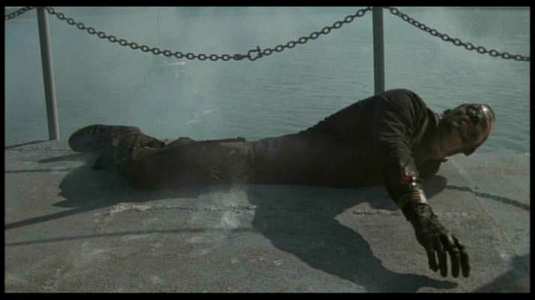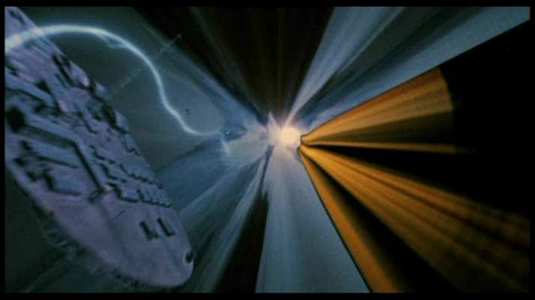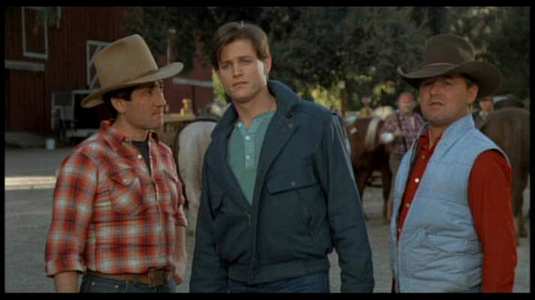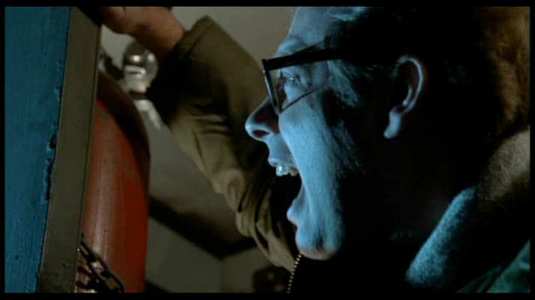Review of Philadelphia Experiment, The
Introduction
Don`t ask me about the Philadelphia Experiment. Don`t ask me about Roswell, the Bermuda Triangle, the Kennedy assassination or the legitimacy of the moon landings. It`s all twaddle designed by manipulative governments to keep the attention of the ill-informed masses away from the questions that really do need to be asked. Your average government bod would far rather you ask about the Loch Ness Monster or the Yeti. He`d ridicule you, turn his nose up, issue non-committal denials, then thank his lucky stars that you didn`t ask why you are taxed when you are paid, taxed when you spend, taxed when you save, and taxed when you die.
As a kid though, I lapped this stuff up, crystal skulls, ancient astronauts and all. Let`s face it, as long as you don`t let it become an obsession, it makes for great entertainment, and it has certainly inspired some great movies and television series. The world would be a duller place without the X Files. Back in 1984, when Chris Carter was yet to have his conspiracy theory inspiration, and before Back to the Future went time travelling, The Philadelphia Experiment movie combined the two to excellent effect, or at least my teenaged self was impressed. The film was inspired by `real` events. Back in 1943 at the height of the war, the US Navy was supposed to have run an experiment aboard a destroyer in Philadelphia. Something went wrong, the details of which are apparently classified, and subject to countless denials. There is speculation and conspiracy theory galore, although if you are daft enough to go looking on the Internet for details, you`ll be deluged with imaginative waffle. I once went exploring for information on this film, and wound up at a conspiracy website that had quoted verbatim the plot of this film as God`s own truth.
It`s better for one`s sanity to just stick with the film, and enjoy it for the sci-fi nonsense that it is.
David Herdeg and Jim Parker are two sailors who have found a cushy assignment to take them out of the war for a while. The US Navy is conducting a radar invisibility experiment aboard the USS Eldridge in Philadelphia, and they need a crew to be aboard for the test. The system developed by a young scientist is an innovative one using EM waves to hide the ship. But when the system is activated, the ship literally disappears, pulled into some kind of vortex. Desperate to escape, Herdeg and Parker jump overboard, only to land in the middle of the Nevada desert in 1984. An aged scientist has tested a missile defence system only for a whole town to vanish, leaving a hole in the space-time continuum. This hole is sucking all matter into hyperspace, and the world is threatened. The key to closing it lies in David Herdeg and Jim Parker.

Video
I won`t mince words. This is a dismal transfer. Its only saving grace is that it is anamorphic (1.78:1), and that alone leaves it a step above simple VHS. Grain is constant, skin tones are plastic looking, and the image is soft, occasionally ghosting into blurriness. There is macroblocking, colour bleed and the layer change is awful. Add to that a 23-year-old print that hasn`t been touched since release, with print damage and faded colour, and you wind up thankful that this is a budget release.

Audio
Anchor Bay and Manga Entertainment fall under the Starz Media aegis, and the treatment the sound gets marks it as thus. Just as most of the Manga anime releases I review have, The Philadelphia Experiment gets the original DD 2.0 Stereo track along with DD 5.1 and DTS upmixes. I stuck with the DD 5.1 track and as expected it isn`t much more than a glorified stereo track, with front focussed sound and a wee bit of ambience. Optional English subtitles are there if you choose.

Features
You get the original theatrical trailer, biographies for Eric Christmas and Nancy Allen, as well as a few pages of film notes.

Conclusion
What a difference twenty years makes! A film that appealed to my inner conspiracy theorist strongly enough to blind me to its flaws, now seems decidedly creaky to more cynical and jaded eyes. The Philadelphia Experiment is a decent enough action adventure, but it lacks that spark that makes it stand out as anything special.
All of that is down to the central performances, something that a teenaged sci-fi nut would have cared little about. Michael Paré is pretty wooden as David Herdeg, and he lacks chemistry with love interest Nancy Allen, who plays Alison Hayes, the damsel who picks up the two sailors in distress. It`s less about believability than it is empathy. I just didn`t care about their relationship, they didn`t sell the love story and despite the fantastic premise, they could have been any ordinary couple. Now, just as when I was a teenager, it was the sci-fi that was of greater interest. Now however, that just wasn`t enough to hold the attention.
Still, the main story is interesting enough, the sci-fi is pretty solid even if some of the terminology seems hackneyed, and oddly the few plot holes have nothing to do with the time travel plot (If you want to interrogate a fugitive, don`t have the pursuers shoot to kill!). The story unfolds as you would expect, and has all the cute time travel culture clash references, with our heroes coming face to face with horror movies, transvestites, and the nightmare of an actor as President.
The Philadelphia Experiment is a blast from the past. If you can ignore its shortcomings, you`re left with a surprisingly entertaining sci-fi action adventure. At its budget price, it`s an affordable dip into nostalgia, and I doubt it will be getting the quality Special Edition treatment any time soon. You might as well put up with the dreary transfer. And whatever you do, steer clear of the sequel.
Your Opinions and Comments
Be the first to post a comment!